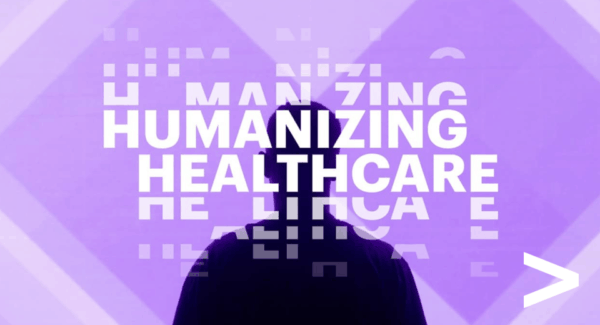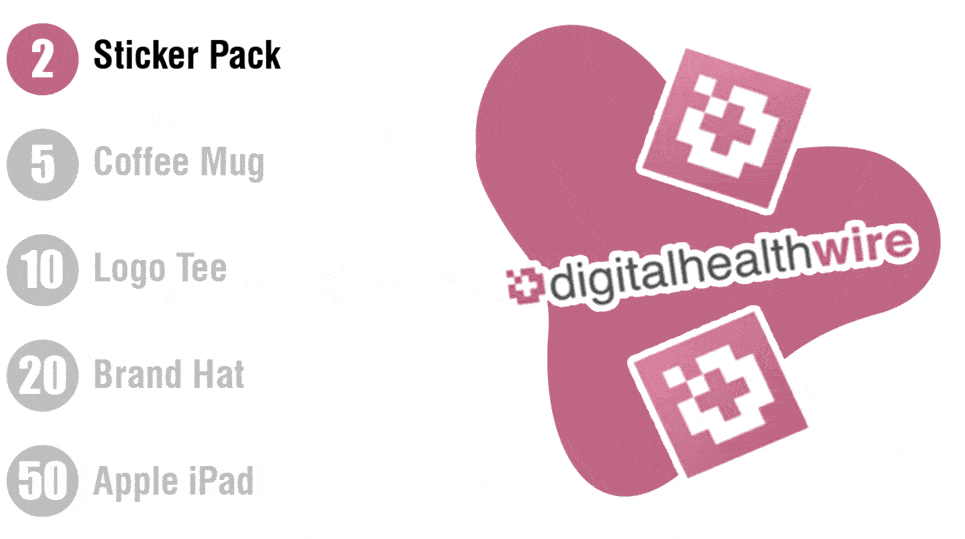|
Modern Consumer Expectations | NOCD Funding
February 6, 2023
|
|
|

|
|
Together with
|

|
|
|
“Experience is a transformational agenda. It’s important to resist the muscle memory of siloed improvement efforts that lack the scope and scale needed for real change.”
|
|
Accenture’s Loren McCaghy and Sarah Sinha
|
|

|
|
Healthcare consumerism isn’t new, but the last few years have rearranged the list of what patients are looking for in their providers more than any other time in recent memory.
To uncover what factors are currently patients’ top priorities, Accenture surveyed more than 21k US healthcare consumers since 2017, finding that loyalty is now more important and harder to come by than ever.
- 30% of respondents switched to a new provider in 2021, up 4% since 2017.
- Nearly 80% of patients who switched cited poor care navigation as the reason for leaving, including bad experiences with staff and inadequate digital solutions.
- Millennials were nearly 8x more likely to switch providers than older adults (46% vs. 6%) – an important trend to keep an eye on considering that they’re in a unique position to make healthcare decisions for both their children and aging parents.
Accenture identified four focus areas for organizations looking to build patient loyalty in an increasingly competitive landscape.
- Access: 71% cited access as the top factor in selecting a provider (availability, convenience, the ability to connect with providers through preferred channels).
- Ease of Doing Business: People who find their providers “very easy” to work with are 9x more likely to stay. Even providers who were “somewhat easy” to work with were 3x more likely to keep patients.
- Digital Engagement: 79% of patients who described themselves as “highly digital” were likely to stay with their providers. These patients exclusively prefer digital engagement and only fall back to traditional channels when digital methods fail.
- Trust: Patients who trust their provider were 5x more likely to stay (84%), and almost 7x more likely to stay than those who don’t trust their providers at all.
The Takeaway
Accenture’s report underscores how important it is to lead with the patient experience when building loyalty… and just how difficult of a job that is to actually get right. Patients trust providers who make them feel heard and informed about the state of their health, but building true loyalty “not only requires the ability to meet people where they are, it also means understanding where they are going.”
|




|
|
How Medallion Helped Skintap Launch in 15 States
In order to launch and scale, Skintap had to build a network of dermatologists who could see patients across the US. Learn how Medallion helped Skintap’s providers get licensed in over 15 states in less than four months – without any headaches and well before their launch date.
|
|
Ultimate Guide to Selecting Your Drug Database
Do your providers need easy access to real-time drug knowledge and clinical decision support? Join Synapse Medicine CEO Clement Goehrs, MD, MSc on February 22nd to discover the essential factors to consider when selecting a drug database for your health tech product.
|
|
- NOCD Raises $34M: Obsessive compulsive disorder treatment company NOCD raked in $34M to accelerate the expansion of its OCD-specialty therapist network and its outcomes data analysis efforts. NOCD currently operates in all American states and completes 250k therapy sessions per year, reportedly averaging a 35% reduction in OCD symptom severity through its Community-Driven Therapy model that identifies, engages, and manages people with OCD.
- Salve Lucrum: Dr. Don Berwick penned a great article on how the grip of financial self-interest on US healthcare is becoming a stranglehold with serious consequences. Dr. Berwick outlines many of the adverse incentives prompting greedy behavior and offers advice on how to guide the industry toward a better path. “The cycle is vicious: unchecked greed concentrates wealth, wealth concentrates political power, and political power blocks constraints on greed.”
- Audio-Only Telehealth Follow-Ups: New research from Kaiser Permanente shows that audio-only telehealth appointments are slightly more likely to lead to follow-up appointments than video. Among 734k primary care telehealth appointments (58.4% audio-only) between March and October 2020, audio-only visits saw higher rates of in-person follow-ups (12.5% vs. 11.8% for video), trips to the ED (1.5% vs. 1.2%), and hospitalizations (0.19% vs. 0.14%). While both modalities usually performed well enough to avoid in-person follow-ups, it wouldn’t be surprising if early-pandemic office closures were skewing the data.
- Verily’s Granular Picks Up Speed: The Information reported that Verily more than doubled its revenue last year to make it the largest Alphabet subsidiary after Google proper. After diving into the company’s financials, Verily’s payor business Granular looks to be the main cause of the performance jump. Granular offers stop-loss coverage to protect employers from higher-than-expected employee medical costs, and the business’ revenue rose nearly sixfold to $151M through the first nine months of 2022.
- Duplicating Health Information: A Carta Healthcare survey found that 83% of patients report having to provide duplicative health information during their health appointments. Among 1k respondents, nearly three-quarters completed more than two duplicate documents, 42% spent more than six minutes recounting their medical history every appointment, and one in five said having to repeat medical forms made them less likely to return to a doctor’s office.
- Neko Health Debut: Longevity-focused startups gained more celebrity-driven momentum last week with the debut of Neko Health, a proactive whole-body scanning company cofounded by Spotify CEO Daniel Ek. The $190 exams combine a 360-degree body scan, cardiovascular scans, sensors, and blood tests to collect 50M data points that are analyzed to assess patients’ unique risks. Sounds good on paper, but some radiologists have voiced concerns about “the psychological and financial burden of chasing the inevitable deluge of incidental findings.”
- Telehealth vs. In-Person OUD Care: A Harvard-led study found no sign that telehealth is inferior to in-person care for opioid use disorder treatment, although there was also little evidence that it increased access or improved care. After analyzing data from 11.8k OUD patients and 1.7k clinicians, there were no significant differences in visit frequency, initiation of medications, or OUD-related adverse outcomes between patients treated by clinicians with high vs. low telemedicine use throughout the prepandemic and pandemic periods.
- Clearsense Closes $50M: Data analytics startup Clearsense closed a $50M Series D round (total funding now $100M) to further develop its 1Clearsense Data Management Platform that lets health systems unlock value from their existing data. 1Clearsense is a “clear-box” self service platform that manages all technical and business metadata, master / reference data, data quality, and analytics governance.
- January Jobs Report: The healthcare job market still appears to be firing on all cylinders, with the latest US employment data showing that the industry added over 58k jobs in January. The gains were led by ambulatory healthcare services at 30k jobs, followed by nursing / residential care facilities (17k each), and hospitals (11k). The job growth represented an acceleration from last year’s average of 47k jobs per month during the pandemic recovery.
- Orlando Health and Biofourmis: Orlando Health is partnering with Biofourmis to launch a new hospital-at-home program in early 2023. The collaboration will use Biofourmis’ EHR-integrated solution to collect patient vitals and physiologic signals, as well its Biovitals Analytics Engine that provides patient baselines to enable Orlando Health providers to determine longitudinal health trajectories.
- Rural Living Tied to Increased HF Risk: A 13-year study of 27k Americans found that adults living in rural communities have a 19% higher risk of developing heart failure compared to their urban counterparts. The elevated risk in rural populations was independent of cardiovascular risk factors and socioeconomic status, and was greatest among Black men (HR: 1.34), White women (HR: 1.22), and Black women (HR: 1.18).
|
|
Clinical Documentation Integrity For VBC
The growing use of risk-adjusted reimbursement in outpatient settings means clinical documentation needs to keep up, or health systems risk leaving revenue on the table. Check out Nuance’s new blog to learn how shifting reimbursement models make clinical documentation excellence more important than ever, and how AI can help you achieve it.
|
|
unResign From Nursing with connectRN
connectRN’s new campaign unResignation Notice is helping nurses recommit to the profession they love by highlighting both the challenges they face and the reasons why they want to return. “It’s not in a nurse’s nature to quit. Something needs to change, and it’s not the nurses.” Learn more and sign your own unResignation Letter here.
|
|
Streamlining Care With BrainInsight AI
Discover how Hyperfine’s BrainInsight AI tools are streamlining patient care by giving clinicians the quantitative biomarker information needed to reduce the burden of manual brain MRI measurements and decrease the time to diagnose and treat.
|
|
|
Share Digital Health Wire
|
|
Spread the news & help us grow ⚡
|
|
Refer colleagues with your unique link and earn rewards.
|

|
|
|
|
Or copy and share your custom referral link: *|SHAREURL|*
|
|
You currently have *|REFERRALS|* referrals.
|
|
|
|
|